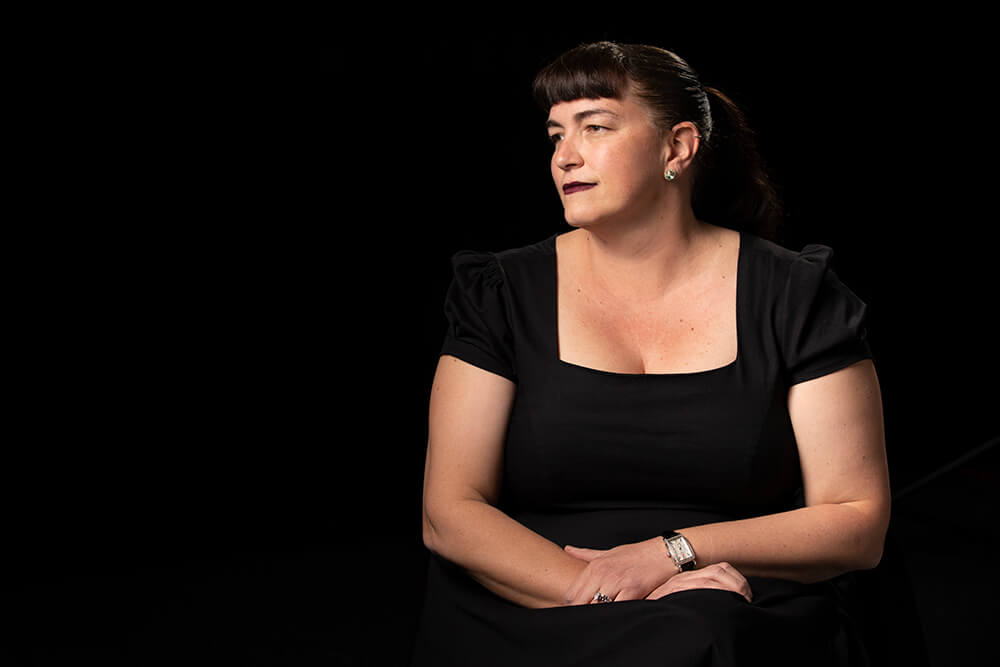Darcy Anderson
Senior program coordinator for the Center for ScholarsAnti-racism is:“A lifelong commitment to dismantling institutionalized, systemic white supremacy and racism through focused and sustained actions, education and policies.”
Recognizing My White Privilege and its Intersection with Anti-Racism
I did not grow up in an overtly racist household.
My parents did not use hateful or racist speech. They did not engage in practices or organizations that were exclusionary or segregated. So, I spent much of my life viewing myself as "not racist."
But as I genuinely and consciously began my journey toward being an anti-racist, I had to confront the systems and privileges that had and continue to benefit me. I had to examine my views and biases about how I engaged race through actions, language, and the ideals and institutions that uphold white supremacy and detrimentally and lethally affect Black, Indigenous and people of color (BIPOC.)
One of the most important things I had to recognize was my white privilege and how I presented to those around me. When I walk into my classroom, office, or any space on campus, people see me.

Unless they know me, I cannot expect them to assume that I am a safe or inclusive person. I present as a white, cis-gendered, heterosexual female, and I fit into the colonized standards of white beauty. I hold an advanced degree, and I get to say as such when I introduce myself to students or colleagues or lead trainings. It even states that in my email signature.
How I present comes with inherent power and privilege because of the systems of white supremacy in our community, country and throughout the world.
When people, especially my students, first encounter me, they don't know if I believe that Black Lives Matter or care about the plight of Indigenous folks. They don't know my views on our Titan Dreamers or the increased incidents of anti-Asian hate. They don't know if I care about the LGBTQIA+ communities and the BIPOC within them.
They have no idea if I am a safe person to share their identities and intersectionalities with. So, it is important to share who I am and my identities to hopefully create a brave space that can also operate as a safe space for them. I want my students and colleagues to know that whether they are in my office, my classroom, or some other area on campus, they are welcome and their lives and identities will be honored and upheld.
I want them to know that I will stand up, speak up and speak out for them and with them when I need to. But, I will also sit back, listen and learn when I need to.
Anti-racism is a lifelong journey, and I am committed to it.
Darcy Anderson ’15, ’19 (B.A., M.A. American studies) is a proud first-generation Titan. She is the Senior Program Coordinator for the Center for Scholars and a part-time lecturer in the Department of American Studies and the College of Business and Economics. Darcy works to educate others about how to fill in the silences in history and be inclusive at all levels through challenging systems and ideologies.